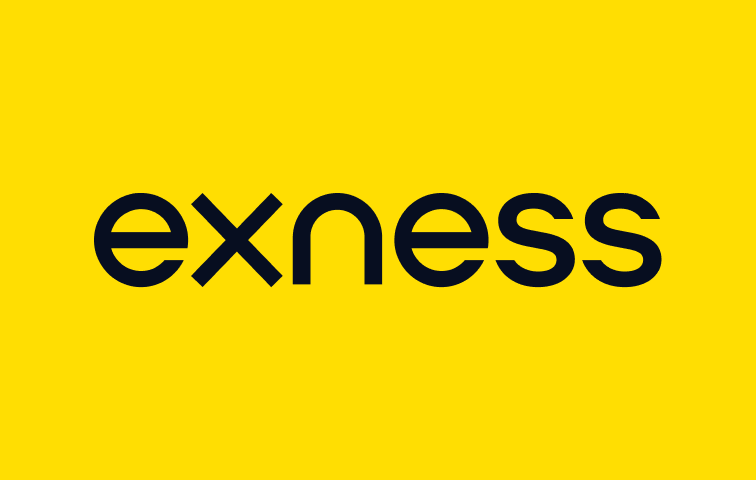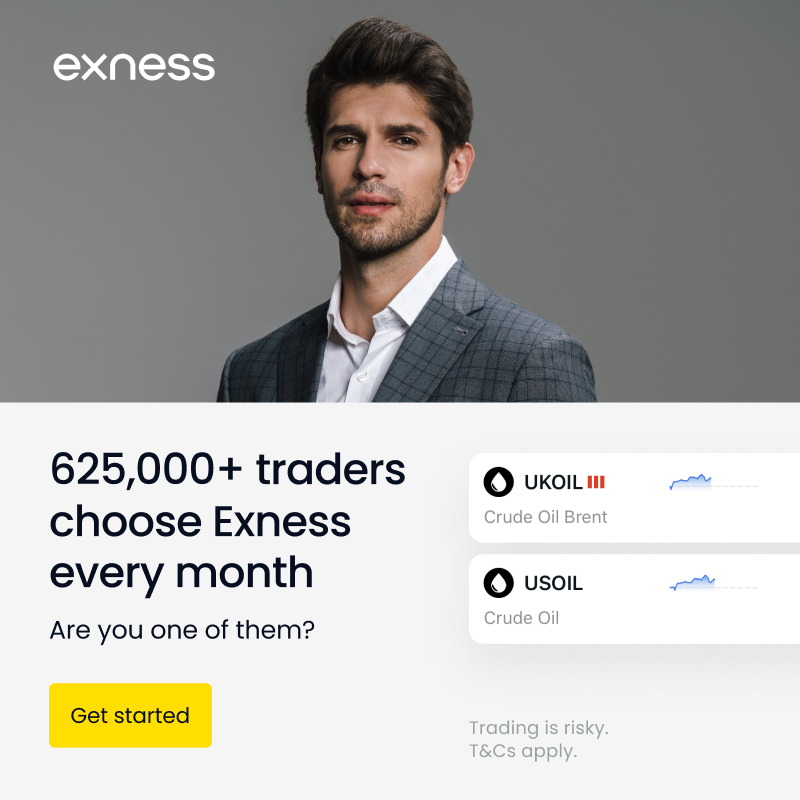
8 minute read
Exness trading is legal in Pakistan? Your 2025 Guide to Forex Regulations
from Exness
by Exness Blog
Forex trading has surged in popularity across Pakistan, driven by the promise of financial independence and access to global markets. Among the many platforms available, Exness stands out as a leading international forex and CFD broker, known for its competitive spreads, advanced tools, and user-friendly interface. However, a critical question persists for Pakistani traders: Is Exness trading legal in Pakistan? In this in-depth guide, we’ll explore the legal framework surrounding forex trading in Pakistan, Exness’s regulatory status, its operational capabilities, and practical considerations for traders in 2025.

✅ Trade with Exness now: Open An Account or Visit Brokers 👈
Understanding Forex Trading in Pakistan
Forex trading, or foreign exchange trading, involves buying and selling currencies to profit from fluctuations in exchange rates. It’s the largest and most liquid financial market globally, with a daily trading volume exceeding $7 trillion. In Pakistan, forex trading has gained traction as an alternative investment avenue, particularly among retail traders seeking to diversify their portfolios. The rise of online platforms like Exness has made it easier for Pakistanis to access global markets from their smartphones or computers.
However, the legality of forex trading in Pakistan is governed by a complex regulatory framework overseen by two primary institutions: the State Bank of Pakistan (SBP) and the Securities and Exchange Commission of Pakistan (SECP). While forex trading itself is legal, it comes with specific restrictions and guidelines that traders must follow to ensure compliance. These regulations aim to prevent money laundering, ensure transparency, and protect investors from fraudulent practices.
Is Forex Trading Legal in Pakistan?
The straightforward answer is yes, forex trading is legal in Pakistan, but it operates under strict conditions. The SBP regulates foreign exchange transactions under the Foreign Exchange Regulation Act, 1947, while the SECP oversees financial markets, including securities and some aspects of forex trading, under the Securities Act, 2015 and the Securities and Exchange Commission of Pakistan Act, 1997. Here are the key points Pakistani traders need to understand:
Authorized Brokers: Forex trading is permitted through brokers licensed by the SBP or SECP. Locally regulated brokers, such as those registered with the Pakistan Mercantile Exchange (PMEX), are subject to strict oversight. However, many Pakistani traders use international brokers like Exness, which operate under global regulatory frameworks.
Foreign Currency Restrictions: The SBP imposes limits on foreign currency remittances to control capital outflows and maintain economic stability. Traders must use authorized channels, such as local banks or approved e-wallets, for deposits and withdrawals.
Tax Obligations: Forex trading profits are subject to capital gains tax under the Income Tax Ordinance, 2001, administered by the Federal Board of Revenue (FBR). Traders must maintain accurate records of transactions and report earnings to ensure compliance.
Prohibited Practices: Trading on domestic exchanges for foreign currency pairs is restricted, and platforms engaging in aggressive marketing or unauthorized operations may face regulatory action. In 2022, the SBP declared certain platforms, including specific configurations of Exness, illegal for violating the Foreign Exchange Regulation Act. However, this was due to unauthorized marketing practices, not a blanket ban on Exness itself.
While the regulatory environment is somewhat ambiguous for online forex trading, particularly with international brokers, there are no explicit laws prohibiting Pakistani residents from using offshore platforms like Exness, provided they comply with local financial regulations.
Is Exness Legal in Pakistan?
Exness is a globally recognized forex and CFD broker, established in 2008, with a reputation for transparency, competitive pricing, and advanced trading tools. It serves over 600,000 active traders worldwide and offers access to a wide range of financial instruments, including forex pairs, commodities, indices, stocks, and cryptocurrencies. But is Exness legal for Pakistani traders?
The short answer is yes, Exness is legal in Pakistan, but with important caveats. Exness is not licensed by the SBP or SECP, making it an offshore broker in the Pakistani context. However, it operates legally under multiple international regulatory bodies, including:
Financial Conduct Authority (FCA) in the UK: Known for stringent oversight, ensuring fund segregation and transparency.
Cyprus Securities and Exchange Commission (CySEC): Complies with EU standards, offering robust client protection.
Financial Services Authority (FSA) in Seychelles: Regulates Exness’s global entity, under which Pakistani traders typically operate.
Financial Sector Conduct Authority (FSCA) in South Africa: Enhances regional trust with additional oversight.
These licenses ensure that Exness adheres to global standards, such as segregating client funds, providing negative balance protection, and maintaining transparent operations. For Pakistani traders, this means that while Exness is not locally regulated, it is not blacklisted or banned by Pakistani authorities. The platform’s compliance with international standards provides a layer of security, even in the absence of SECP oversight.
The key reason Exness is considered legal is that it does not actively market its services to Pakistani residents through region-specific campaigns or local advertisements, which could violate SECP regulations. Additionally, Exness has not been listed on the SECP’s unauthorized broker list, nor has it been flagged by the Pakistan Telecommunication Authority (PTA) or Federal Investigation Agency (FIA) for fraudulent activities.

✅ Trade with Exness now: Open An Account or Visit Brokers 👈
Why Pakistani Traders Choose Exness
Exness’s popularity in Pakistan stems from its robust features and accessibility, tailored to meet the needs of both novice and experienced traders. Here are some reasons why Exness is a preferred choice:
Competitive Spreads and Leverage: Exness offers spreads starting from 0.0 pips on professional accounts and leverage up to 1:2000, allowing traders to maximize their capital. However, high leverage carries significant risks, and traders must exercise caution.
Local Payment Options: Exness supports convenient deposit and withdrawal methods for Pakistani traders, including:
Local Bank Transfers: Compatible with major banks like Habib Bank Limited (HBL) and United Bank Limited (UBL).
E-Wallets: Skrill, Neteller, and local options like Easypaisa and JazzCash ensure fast and secure transactions.
Cryptocurrency: Offers an alternative for traders preferring digital assets.
User-Friendly Platforms: Exness provides access to MetaTrader 4 (MT4), MetaTrader 5 (MT5), and its proprietary Exness Trader app, available on Android and iOS. These platforms offer advanced charting tools, real-time market data, and seamless account management.
Islamic Accounts: For Pakistan’s predominantly Muslim population, Exness offers swap-free Islamic accounts that comply with Sharia law by eliminating overnight interest fees. This makes it an attractive option for traders seeking halal trading solutions.
Low Minimum Deposit: With a minimum deposit of just $10, Exness is accessible to traders of all financial levels, making it ideal for beginners.
Demo Accounts: Exness provides demo accounts for practice, allowing traders to test strategies without risking real funds.
Risks and Considerations for Pakistani Traders
While Exness is legal and offers numerous advantages, trading with an offshore broker comes with risks that Pakistani traders must consider:
Limited Local Protection: Since Exness is not regulated by the SECP, Pakistani traders may not have access to the same investor protections offered by locally licensed brokers. In case of disputes, traders must rely on Exness’s international regulators for resolution.
Currency Remittance Restrictions: The SBP imposes limits on foreign currency transfers, which may complicate deposits and withdrawals. Traders must use authorized channels to avoid legal issues.
Tax Compliance: Forex profits are taxable, and failure to report earnings to the FBR can result in penalties. Traders should maintain detailed transaction records and consult tax professionals.
Market Risks: Forex trading is inherently volatile, and high leverage can amplify losses. Traders should employ risk management strategies, such as setting stop-loss orders and avoiding over-leveraging.
Past Regulatory Concerns: In May 2022, the SBP flagged certain Exness configurations for unauthorized marketing practices, leading to temporary restrictions. While Exness has since clarified its operations and is no longer banned, traders should stay informed about regulatory updates.
How to Trade Legally with Exness in Pakistan
To ensure compliance and safety while trading with Exness, Pakistani traders should follow these steps:
Verify Account: Complete Exness’s Know Your Customer (KYC) process to secure your account and comply with international regulations.
Use Authorized Payment Methods: Fund your account through local banks, Easypaisa, JazzCash, or approved e-wallets to adhere to SBP guidelines. Avoid unlicensed cash trades or peer-to-peer transactions.
Report Profits: Declare forex trading profits to the FBR and pay applicable taxes to avoid legal complications.
Start with a Demo Account: Practice trading strategies on Exness’s demo account to build confidence and minimize risks before investing real funds.
Stay Informed: Monitor updates from the SBP and SECP to ensure compliance with evolving regulations. Exness also communicates regulatory changes to its clients, but traders should proactively check official sources.
Conclusion: Is Exness a Safe and Legal Choice for Pakistani Traders?
Exness is a legal and viable option for forex trading in Pakistan, provided traders adhere to local financial regulations. Its lack of SECP licensing does not render it illegal, as it operates under reputable international regulators like the FCA, CySEC, and FSCA. The platform’s competitive spreads, high leverage, local payment options, and Sharia-compliant accounts make it an attractive choice for Pakistani traders. However, the absence of local oversight means traders must exercise due diligence, manage risks, and comply with SBP and FBR regulations.
For those wondering, “Is Exness trading legal in Pakistan?” the answer is a resounding yes, as long as traders operate within the legal framework. By using authorized payment channels, reporting profits, and leveraging Exness’s robust tools, Pakistani traders can confidently explore global markets. Whether you’re in Karachi, Lahore, or Peshawar, Exness offers a reliable platform to elevate your trading journey in 2025. Always prioritize risk management, stay informed about regulatory changes, and consult financial or legal experts if needed to ensure a secure and compliant trading experience.
✅ Trade with Exness now: Open An Account or Visit Brokers 👈
Read more:










